The Berkshires Bowling Alley that Inspired "The Big Lebowski"
It’s been 36 years since the release of The Big Lebowski, the irreverent cult comedy by Joel and Ethan


At an important juncture, the Museum of the City of New York continues its timely inquiry into what makes New York, New York. The new exhibit “Muslim in New York: Highlights from the Photography Collection” which opens this coming Saturday comes on the heels of New York At its Core, the landmark permanent exhibition that delves through 400 years of the city’s history and places New York City’s Muslim community firmly in the city’s origins. On a visit to New York At its Core last October, curator Sarah Henry pointed out New Amsterdam’s first known Muslim resident in 1660 in an interactive map on the city’s religious diversity.
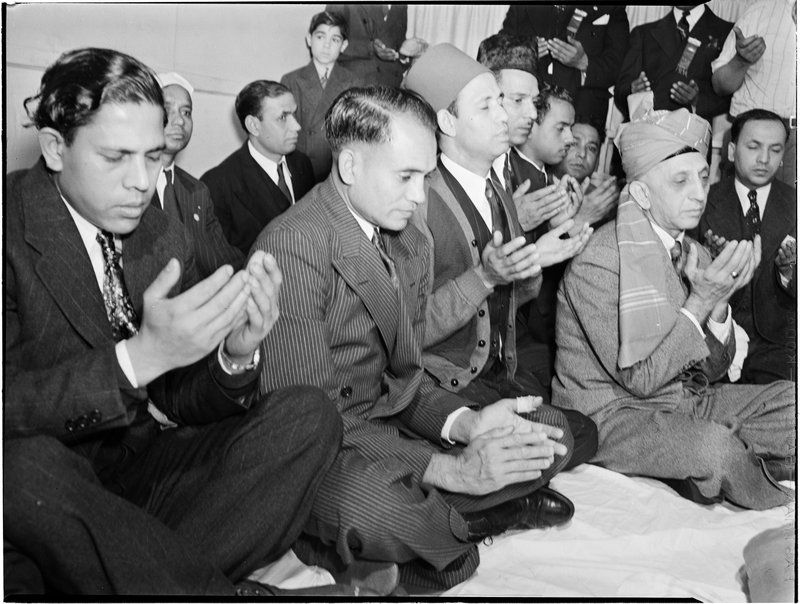
Alexander Alland, Muslims, ca. 1940. Courtesy of the Museum of the City of New York and the photographer’s estate.
This resident, Antony Jansen van Salee, was a Muslim homeowner of North African and Dutch descent. The Museum explains that the slave trade brought more Muslims in the 17th and 18th century. In the late 19th century, the Arabic speaking community in Little Syria (soon to be commemorated with a new park), though settled predominantly by Christians, had a significant Muslim presence, says the Museum, and “Turkish, Russian, Albanian, Bengali, and other Muslims added to the cultural and religious landscape. By the 1910s, the diverse Muslim community could attend prayers in a “Turkish chapel” that served as a mosque in Lower Manhattan.”
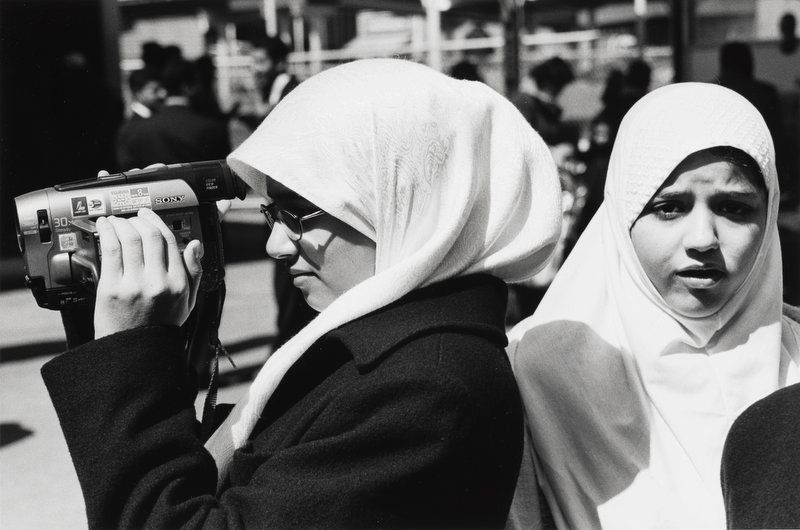
Mel Rosenthal, Filmmakers, 1999. Courtesy of the Museum of the City of New York and the photographer.
Between World War I and II, the Muslim community in New York expanded to areas of Harlem and Brooklyn, while Malcolm X became the city’s most visible symbol of the religion. Immigration reform in 1965 opened up the United States to immigrants from all over the world, welcoming Muslims from the Middle East, Africa, and South Asia. As the Museum states, about 3% of the population of New York City in 2015 identified as Muslim.
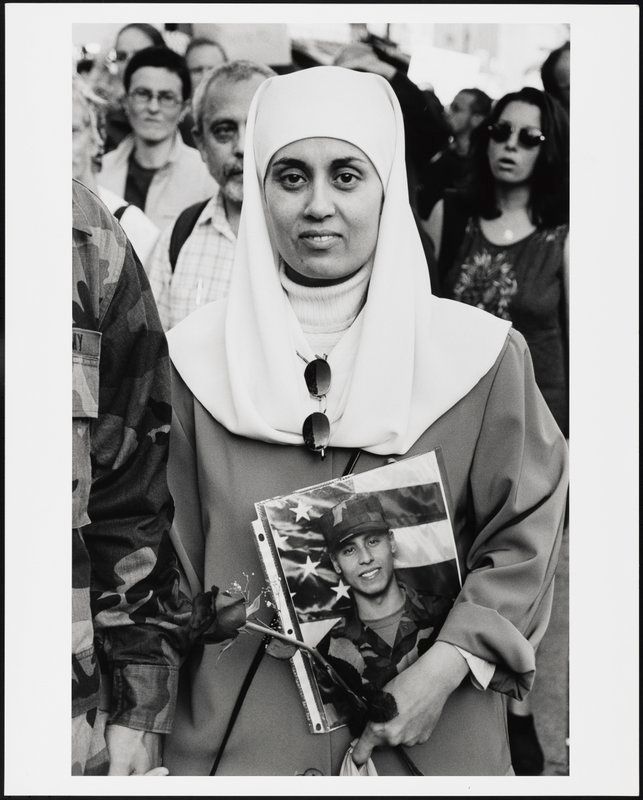
Mel Rosenthal, Debbie Almontaser with photograph of son Yousif, 2001. Courtesy of the Museum of the City of New York and the photographer.
“Muslim in New York” contains 34 historic images from the Museum of the City of New York’s collection from the 20th and 21st centuries by photographers like Mel Rosenthal, who had his own exhibit on 1970s Bronx in the Museum last year, Alexander Alland (who brought Jacob Riis to public attention in the 1940s), Ed Grazda and Robert Gerhardt.
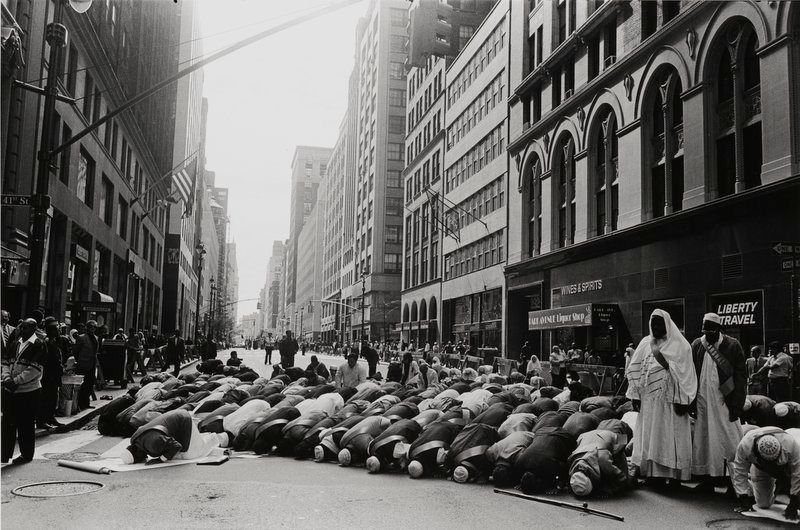
Ed Grazda, Prayer before Muslim Day Parade, Manhattan, NY, ca. 1995. Courtesy of the Museum of the City of New York and the photographer.
Whitney Donhauser, the Museum’s Ronay Menschel Director contends, “This special installation comes at a time when the place of immigrants from Muslim-majority countries is being scrutinized, and even challenged, on a national level. The Museum’s rich photography collection, begun in the 1930s and growing each year, speaks eloquently to the enormous diversity of our city and the many ways in which immigration and religious diversity has enriched and benefited New York, the quintessential city of immigrants. We are proud to display these beautiful images of Muslims in New York as part of that story.”
Here are more images from the special installation:
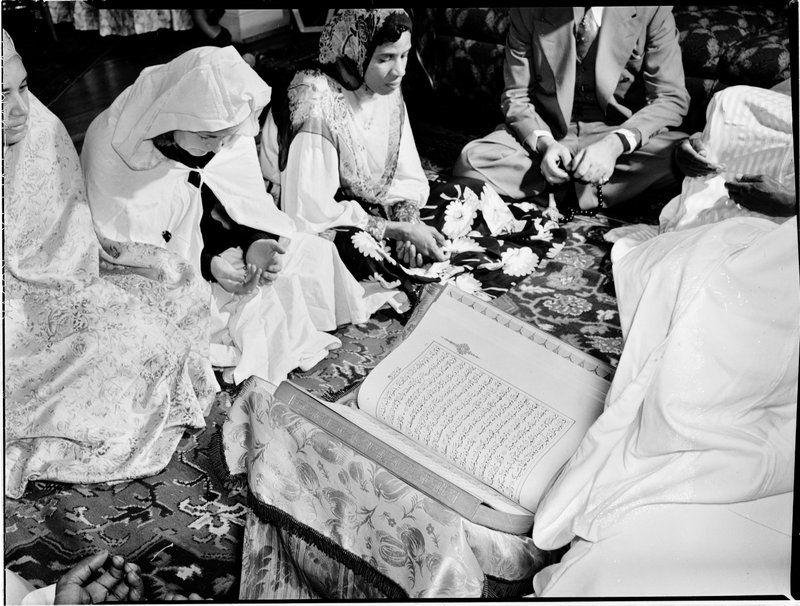
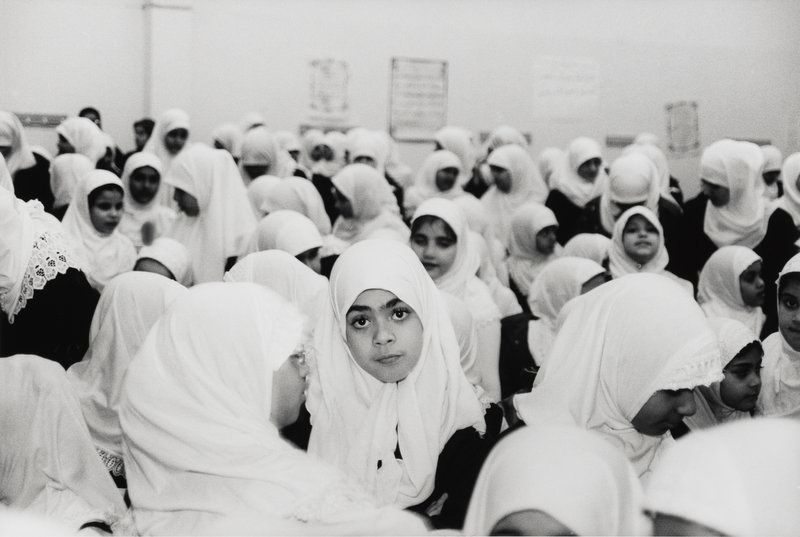
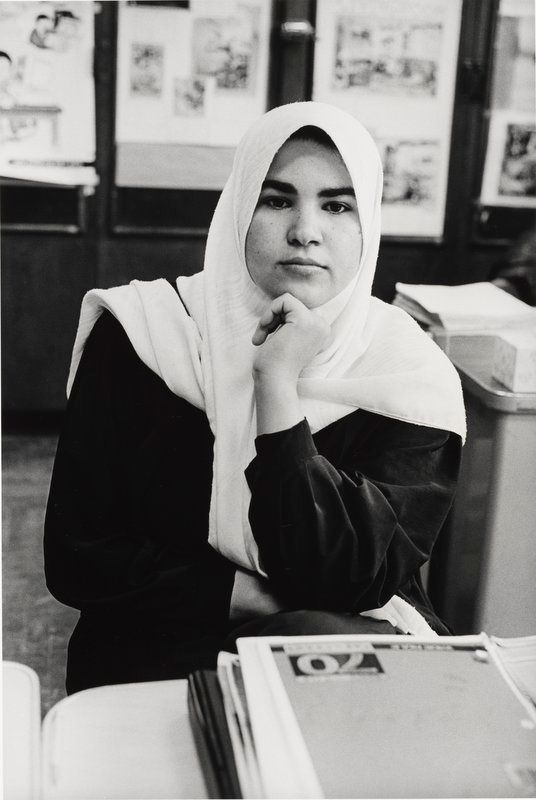
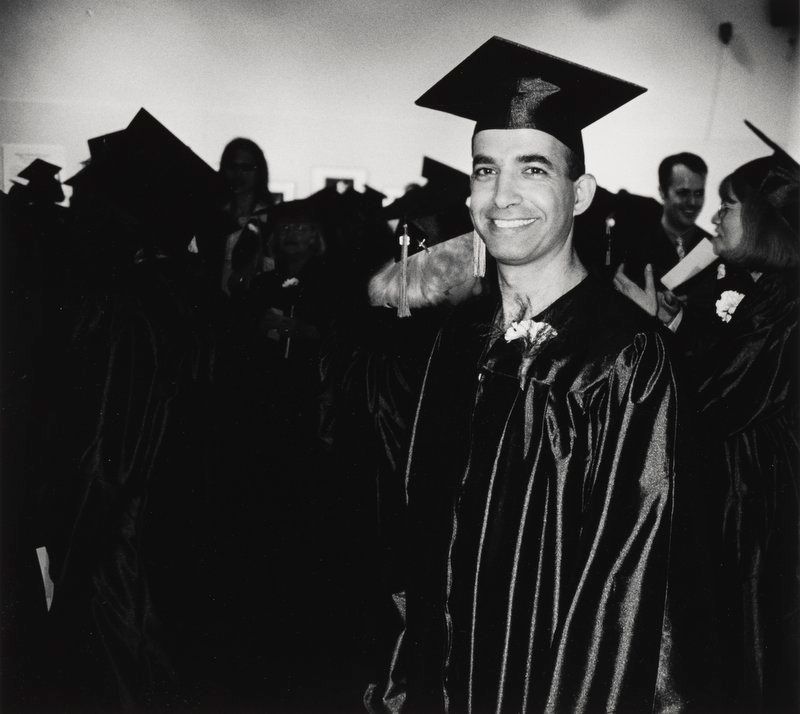
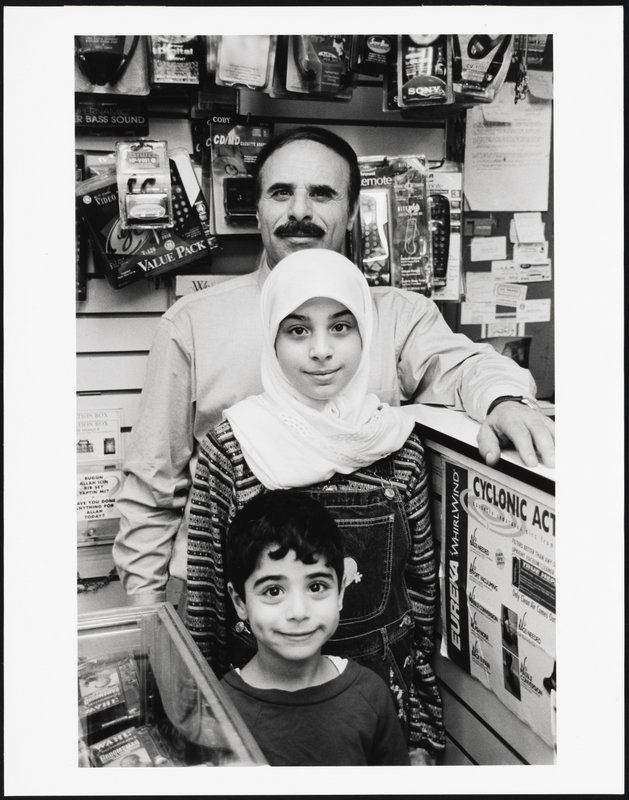
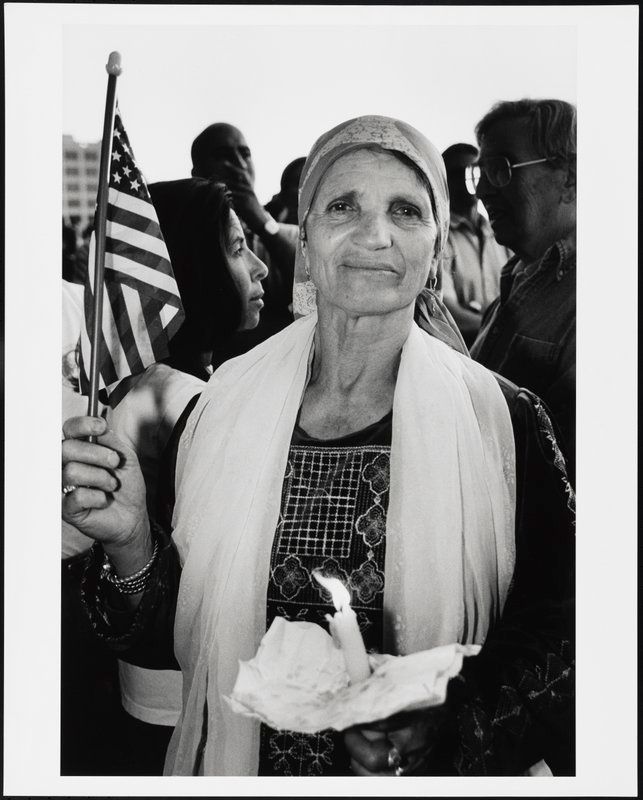
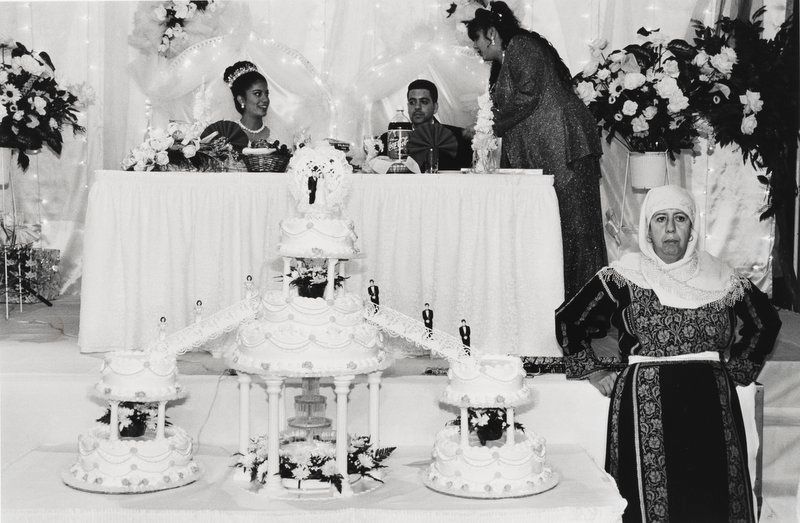
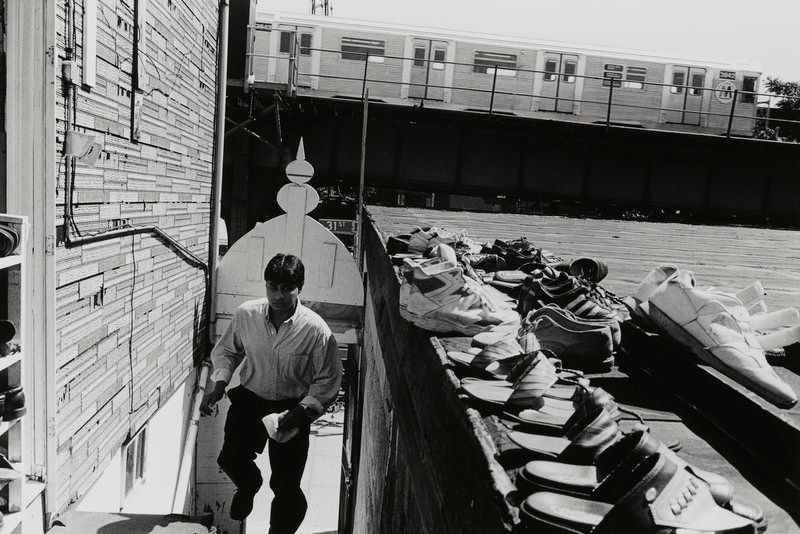
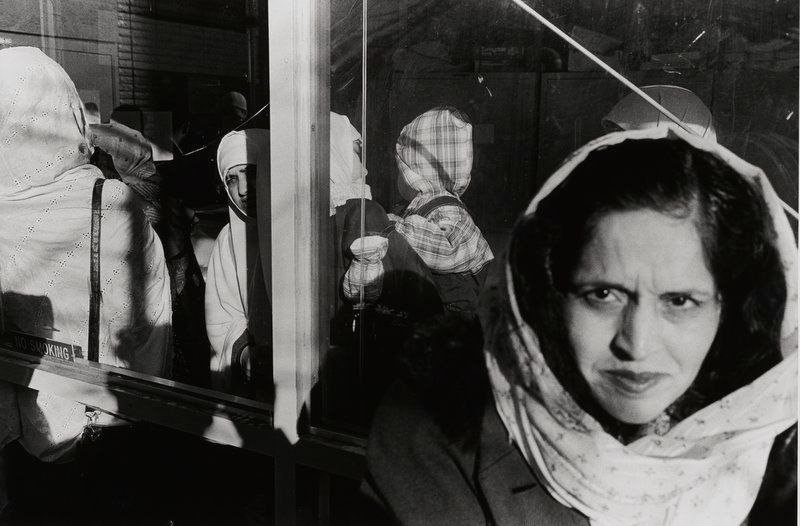
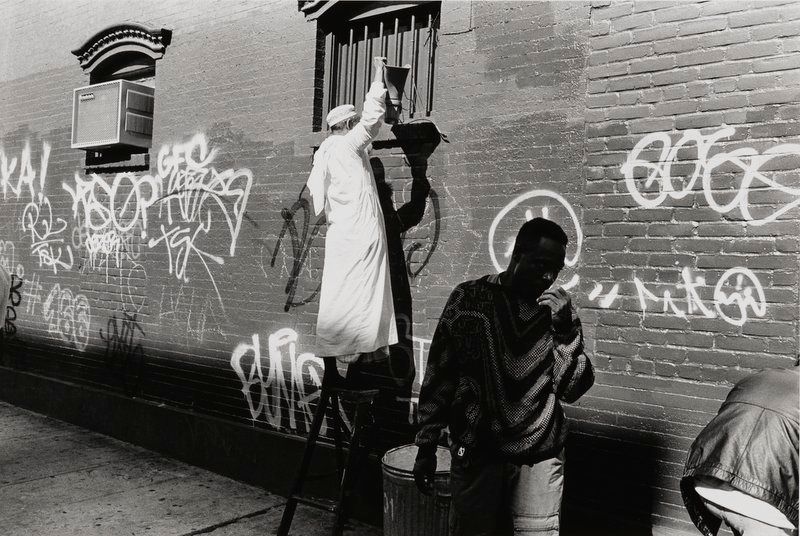
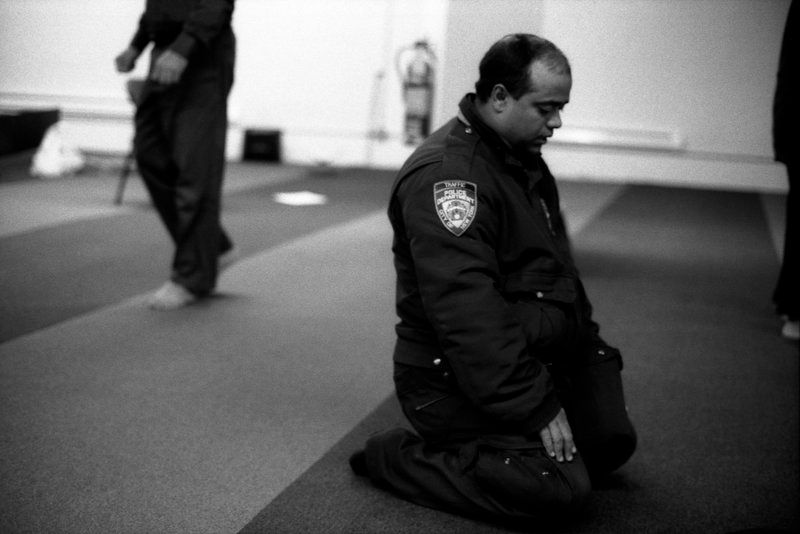
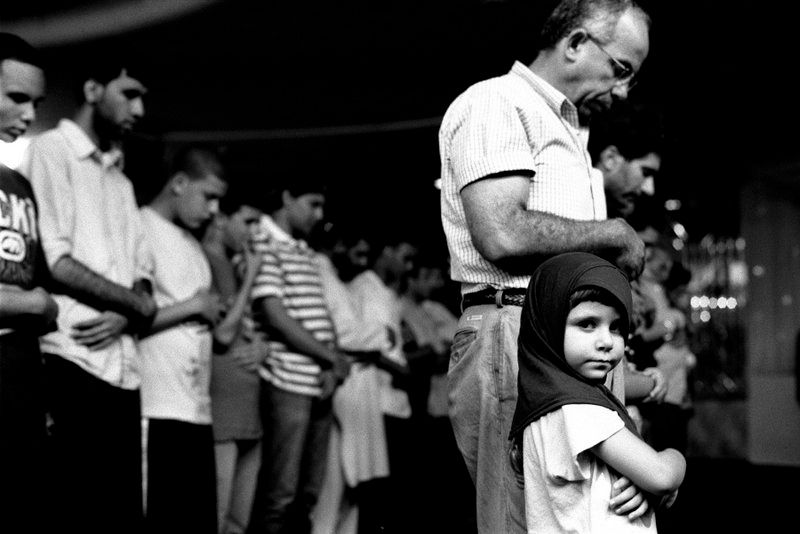
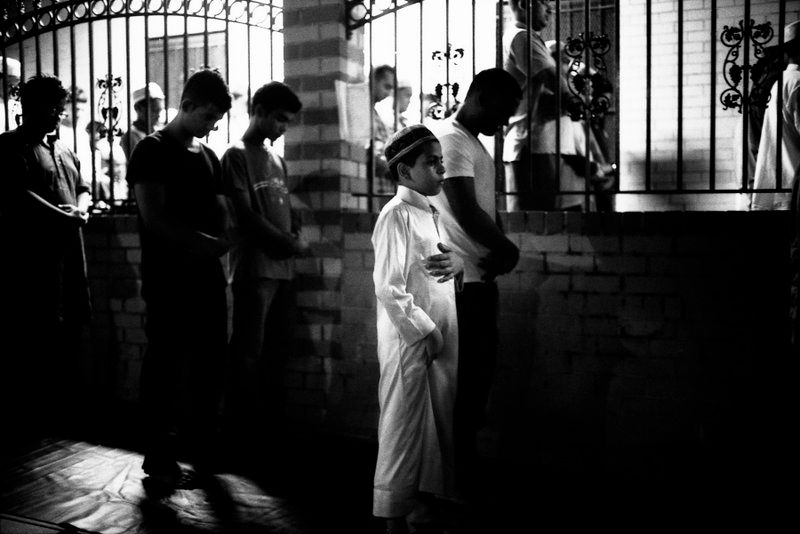
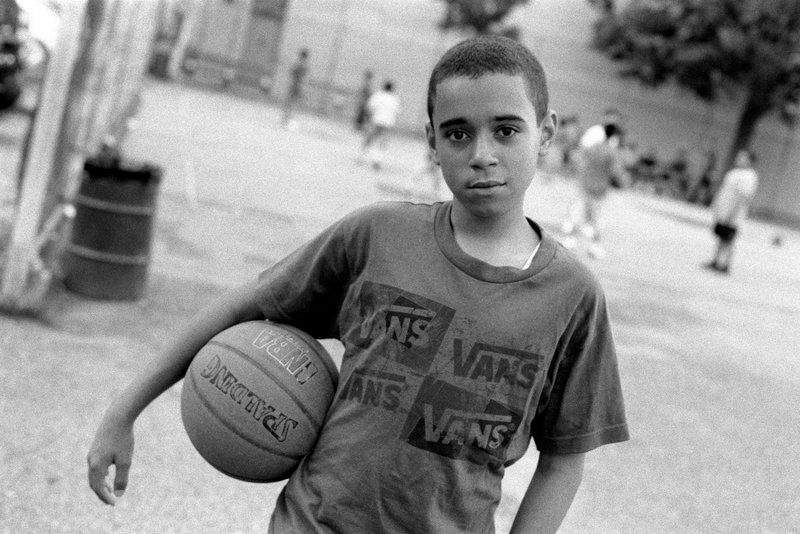
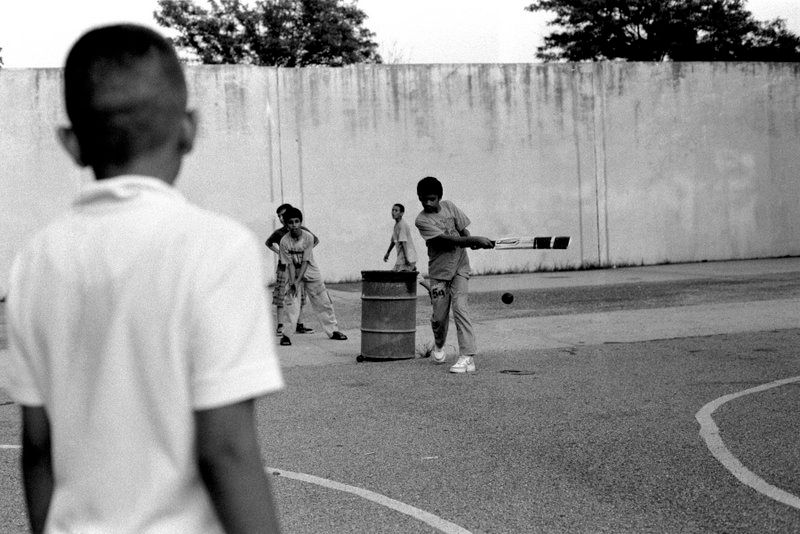
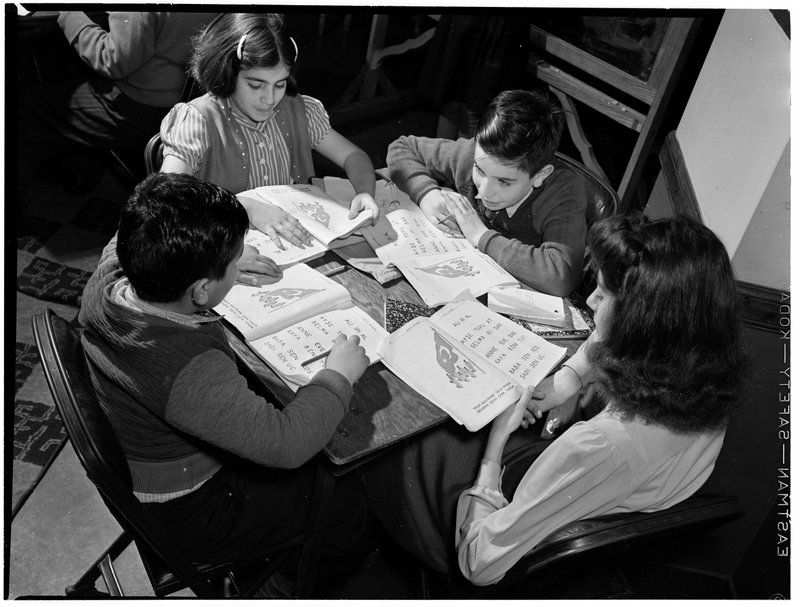
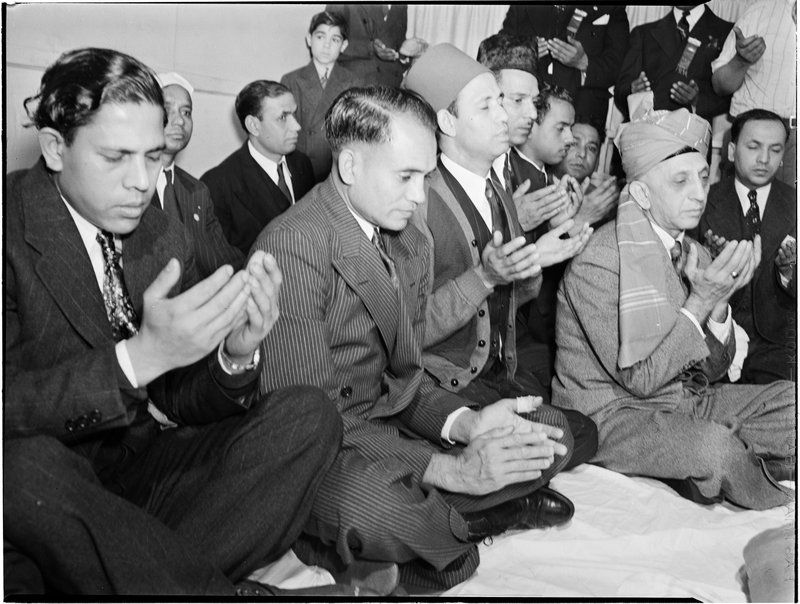
Subscribe to our newsletter